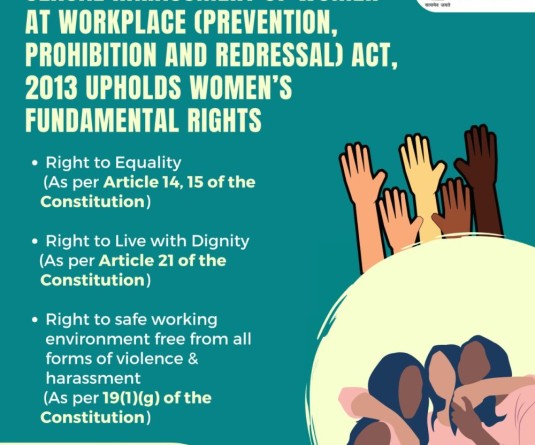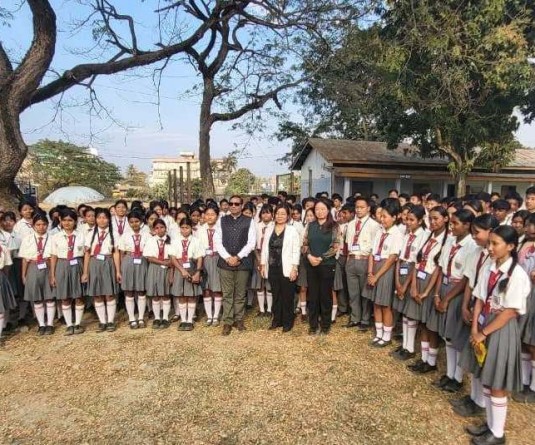Dr Vizovono Elizabeth and Dr Kevileno Sakhrie speaking at closing function of 4th edition of Nagaland Literature Festival.

Morung Express News
Kohima | November 20
Stating concern over rapid cultural shifting with local cultures being impacted by influences from urban, consumer-based cultures, political and religious agendas and the forces of “globalisation”, Dr Kevileno Sakhrie, prominent literary critic & former HOD (English), Kohima College Kohima remarked that, “nowadays it may appear that we are undergoing a kind of indigenous cultural renaissance.”
She was speaking at the closing function of the 4th edition of Nagaland Literature Festival at Capital Cultural Hall Complex Kohima on November 13 wherein she cited how a lot of cultural activities on numerous occasions have only been staged for commercial and short termed purposes.
However, she underscored that, “within our own culture lies the alternative images, self-definitions and strategies to resist this kind of cultural domination and to reclaim Naga way of life.” Stating that our oral tradition challenges modern and Western sources attesting to an alternative Naga view of reality, she underlined that, “our goal, for this reason, is to give voice to the often repressed traditions of our cultural heritage and to transform it into lived reality.”
‘It is literature that makes history come to life’
Asserting that “it is literature that makes history come to life”, she opined that maybe it is also the most accurate depiction of history. In this context, Dr. Kevileno Sakhrie recalled the first literary writers, poets and authors who pioneered, nurtured, led and exemplified the modern literary culture of Nagaland and who also at the same time, established themselves in the front line of contemporary indigenous literature.
These writers, she emphasized, “understood the power of written language and the need to transmit our philosophy, history, and culture across generations and peoples.” Seeking out multiple literary forms to serve differing worldviews, she expressed that, “our indigenous authors shaped their writing into the Naga indigenous literature that we recognise today.”
Having ensured indigenous literature to be one of the best places for understanding indigenous views about land and society and the role of humanity in the cosmos, she pointed out that, “since then, many new literary texts have been produced creating an era of awakening that has fashioned a new voice and a new place for Naga indigenous writers in the national imagination.”
Terming this as “A Naga Literary Renaissance”, she also affirmed that “an important aspect of this is that it is also a way of reclaiming the self and a decolonising process.”
Further asserting that decolonization is a work that belongs to everyone, she however stated that, “we cannot only dedicate ourselves to thinking about decolonizing, but we must act to decolonize.”
‘Decolonisation calls for decentering the narrative’
Emphasizing that decolonization calls for decentering the narrative by which outsiders romanticize indigenous beliefs and surface culture, she articulated that, “it calls for deconstructing colonial imposed systems that continue to oppress indigenous people.”
Towards this end, she expressed that, “we now have indigenous writers of our own who rather than be defined or storied by others, can use their own storytelling to reclaim the Naga story and own it at the same time; writers, who by the sheer power of their words can provide literary concepts, characters, symbols, and narratives that more accurately represent us and the complex context of our world.”
Citing the works of authors like Easterine Kire, Avinuo Kire, Theyiesinuo Keditsu, and Neikehenuo Mepfü-o, she remarked that “our indigenous writers have outlined how the Nagas navigate fearlessly between ostensibly contradictory worlds: tribal traditions and contemporary rationalism, patriarchal customs and female emancipation, age-old animism and Christianity in today’s digital age.”
By mediating between Naga belief systems and the realities of the Western world through their employment of symbolic, temporal and cultural codes reflective of traditional Naga religions and indigenous value in their literary figurations, she noted that “these writers provide a context for Nagas to reclaim their fractured identities by recovering their ancestral memory and individual and communal significance.”
“Hence, I cannot stress enough how important it is to read literature by our own indigenous authors and that honouring Indigenous literature in their substantive, transformational forms- is an important part of decolonisation and reconciliation”, she expressed.
She also underscored that “the future that our writers imagine for us and the stories of the past that they reconstruct, help us to recognise our place in time, both as descendants and as future ancestors.” In repositioning ourselves as authors of our own stories, she added, “Naga writers force non Nagas to reckon with their own accounts of us and by paying homage to their own ethnicity and culture, they pave the way for us to do the same.”
‘Amplify our indigenous voices by promoting homegrown storytellers’
Presenting the Way Forward, Independent Researcher & Editor, Dr. Vizovono Elizabeth said that the theme of the 4th edition of Nagaland Literature— “Amplifying our indigenous voices” was chosen with intention, to align with one of the main objectives of Writers Collective, which is to promote our homegrown storytellers.
“It is also to make their works visible, and provide a platform for our stories to be told and heard”, she stated while pointing out that “we are still in the process of learning how to do that” and further asserted that, “it is important that we start from home, at the local level, and gradually build a sustainable literary eco-system.”
Taking this forward, she articulated that “Writers Collective aims to go beyond celebrating our literature by having an annual festival” and will continue to organize other literary activities. Also following in the tradition of Open Mics in other parts of the world, she further informed that this has been included to provide a platform for aspiring, as well as up and coming artists to share their original work with an audience, gain confidence, get to know and network with other artistes, and get inspiration from more established featured poets and artistes.
“This will continue to be a regular feature at Nagaland Literature Festival”, she also announced and exuded hope that, “together we will continue to build a network of literature lovers so that we can support and encourage one another, and keep our stories vibrant, fresh and relevant.”
Having moved away from the shadow of the Hornbill Festival, she remarked that, “we have stepped into our own light.” One of the most heart-warming things we have witnessed this year, she added, “is the largest attendance so far especially from the youth.” “We are overwhelmed by the enthusiastic response from literature and book lovers. This kind of support just fuels us, and motivates us to move ahead confidently and passionately,” she put across.






